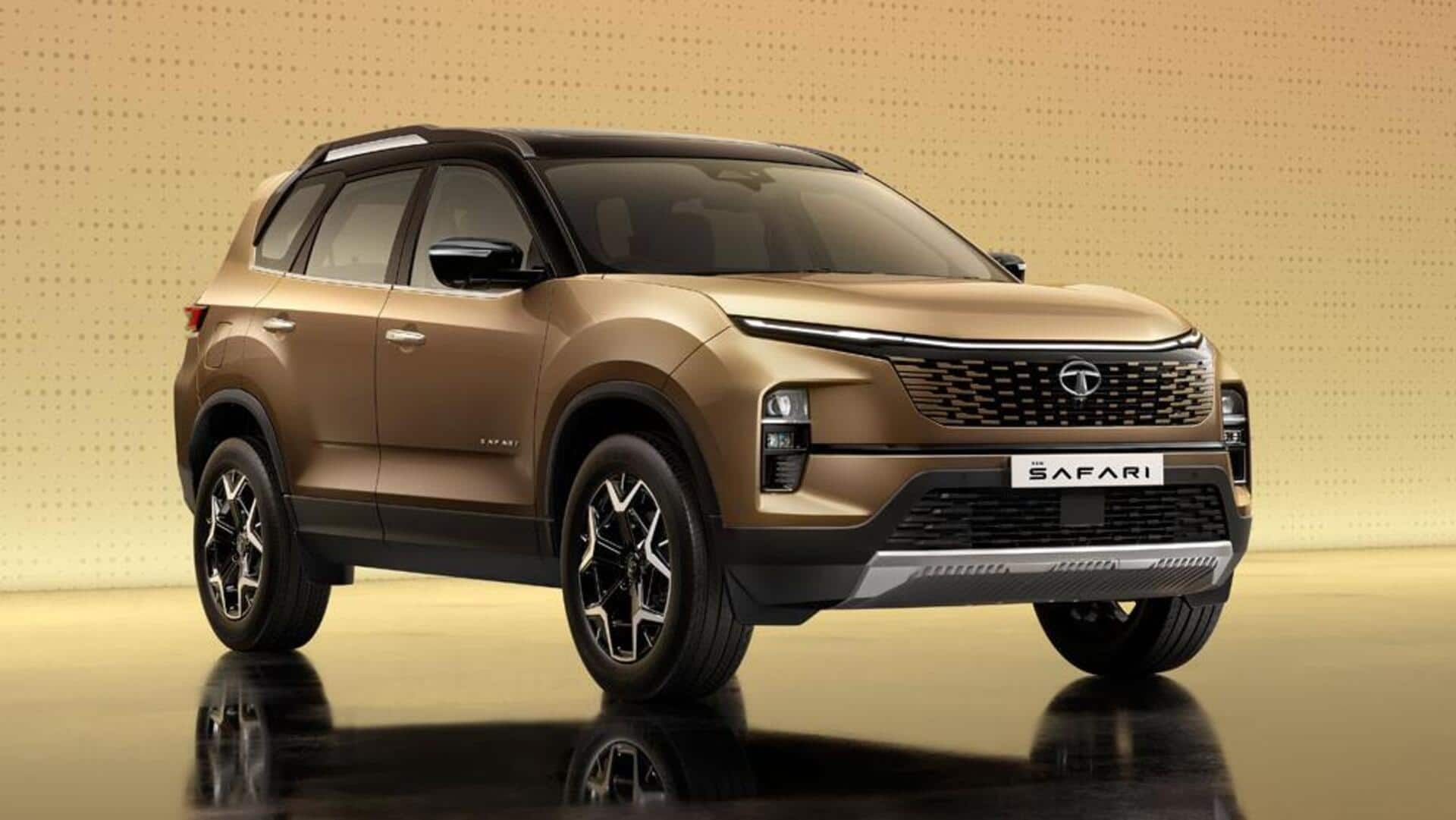
2023 Tata Safari, Harrier undergoing Bharat NCAP crash tests
What's the story
Tata Motors, a major player in India's vehicle safety movement, has nominated its flagship models, the 2023 Tata Safari and Harrier, for crash testing under the Bharat New Car Assessment Program (NCAP).
With the two being among the first 30 cars nominated for testing, Tata Motors aims to showcase the safety improvements in these updated models.
Both vehicles get six airbags, three-point seatbelts, seatbelt reminders, and adaptive cruise control as standard across all variants.
Safety
Enhanced safety features in Tata Safari, Harrier facelifts
The revamped Tata Safari offers a wide range of safety features from the base model up, including ISOFIX child seat mounts, four disc brakes, brake disc wiping, hill hold, traction control, electronic stability program, rollover mitigation, corner stability control, ABS, EBD, central locking, and tire pressure monitoring system.
While the Harrier shares many of these features, it doesn't include rear disc brakes as standard.
Top-spec variants of both models also feature a driver's knee airbag, totaling seven airbags.
Challenge
Competing with Mahindra XUV700 will be challenge
Both the Safari and Harrier face tough competition from the Mahindra XUV700, which has already earned a five-star rating in Global NCAP's crash tests.
Given Tata's history of prioritizing crash safety in its vehicles, it's highly likely that both updated SUVs will also achieve high scores under the new Bharat NCAP crash testing protocols.
This would further strengthen Tata Motors's reputation for vehicle safety in India.
Rumors
Rumors surrounding Stellantis-sourced 2.0-liter diesel engine
The crash tests of the 2023 Tata Safari and Harrier will also address widespread rumors about the Stellantis-sourced 2.0-liter MultiJet diesel engine used in these vehicles.
The engine's oil filter is allegedly positioned dangerously close to the driver's footwell, potentially causing serious harm in the event of a crash.
Until now, no vehicles equipped with this engine have been crash-tested, fueling further speculation.
The upcoming tests will provide clarity on this issue and help determine the safety of the engine.